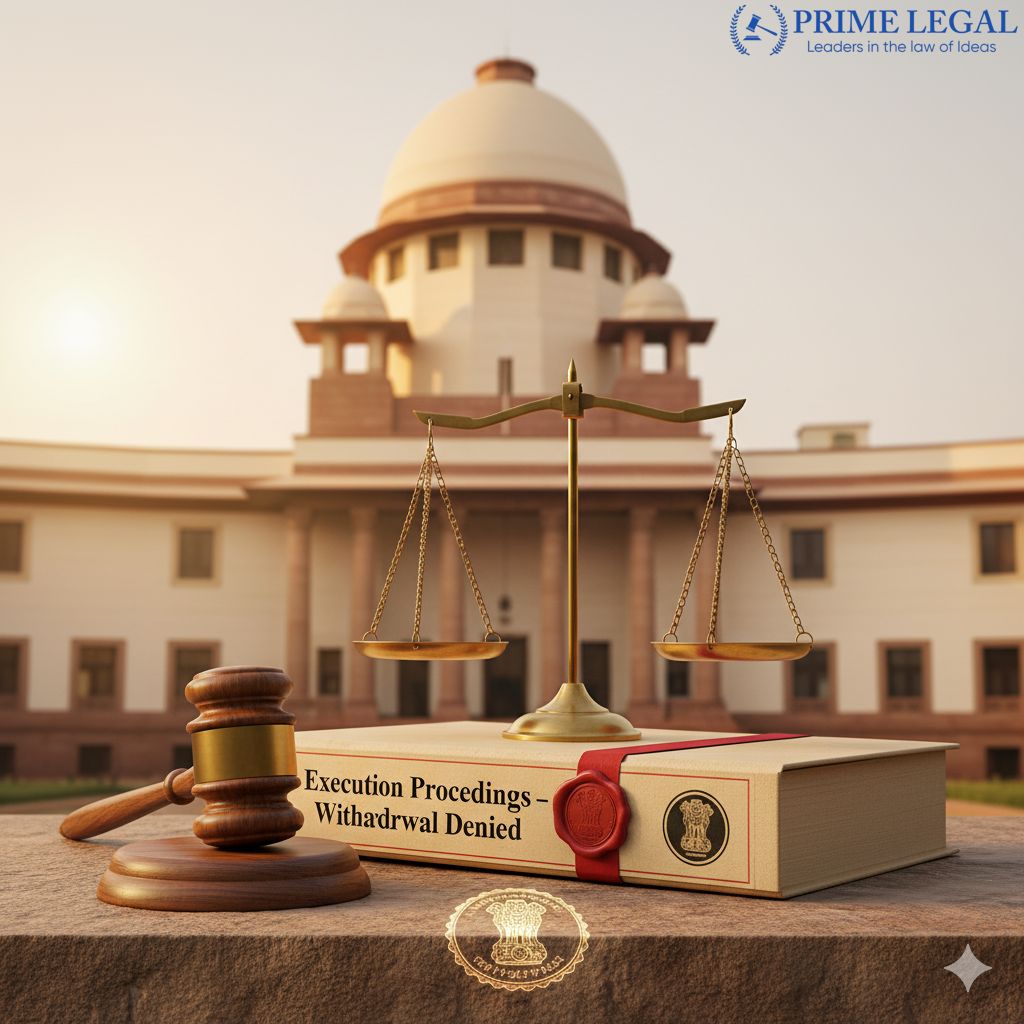INTRODUCTION
Strengthening the principle of expeditious justice, the Supreme Court has ruled that executing courts must not allow the withdrawal and re-filing of the execution petitions without a valid and justifiable reason. The further stated that such practices lead to unnecessary procedural delays and hinder the effective enforcement of decrees. The bench comprising Justice J.B. Pardiwala and Justice Pankaj Mithal issued this directive while observing the nationwide pendency of execution petitions, which stands at an alarming figure and exceeding 8.8 lakh cases in India.
BACKGROUND
The matter arose from the continuing proceedings in Periyammal (Dead Through LRs) & Ors. v. V. Rajamani & Anr. Civil Appeal Nos. 3640–3642 of 2025, wherein the Supreme Court had earlier directed the disposal of execution petitions within six months. During compliance monitoring, the Court found that in several states parties are withdrawing the execution petitions, only to re-file it later, without any justified explanation. Karnataka High Court revealed 1.41 lakh execution petitions in the district courts as of February 28, 2025. Expressing the serious concern over this cause, the Apex Court emphasized that such procedural lapses defeat the objective of prompt execution decrees.
KEY POINTS
- The Supreme Court categorically held that executing courts must not allow withdrawal of execution petitions unless supported by valid and compelling reasons
- The Court observed that withdrawal observed by re-filing proceedings is often used as a delaying tactic, to undermine judicial efficiency
- The Registrar General of Karnataka High Court was directed to present this order before the Chief Justice to frame guidelines for effective disposal of pending execution petition
- The bench further ordered that compliance with these directions be reviewed on April 10, 2026, thereby maintaining continuous judicial oversight
- The bench as well ordered the officers would be held accountable in following its directive
RECENT DEVELOPMENTS
Following the Supreme Court’s ruling in Periyammal (Dead Through LRs) & Ors. v. V. Rajamani & Anr. Civil Appeal Nos. 3640–3642 of 2025 the apex court stated that despite the disposal of 3.3 lakh cases, over 8.82 lakh execution petitions remain pending. The Court directed all the High Courts to issue circulars ensuring that execution petitions are disposed of within six months and to hold presiding officers for delays. Taking the judicial precedent of Rahul S. Shah v. Jinendra Kumar Gandhi (2021) 6 SCC 418 the court observed that execution proceedings must be executed promptly and only extended if there is justifiable justification. These developments aim to enhance the judicial efficiency and to defeat procedural misuse in execution matters.
CONCLUSION
By setting strict limits on the withdrawal and strict filing of execution petitions, the Supreme Court has reinforced the need for procedural integrity in the enforcement of decrees. The decision not only seeks to curb judicial delays but also promotes accountability among executing courts. With the next review in April, 2026 reminds that justice delayed through procedural abuse is justice denied.
“PRIME LEGAL is a full-service law firm that has won a National Award and has more than 20 years of experience in an array of sectors and practice areas. Prime legal falls into the category of best law firm, best lawyer, best family lawyer, best divorce lawyer, best divorce law firm, best criminal lawyer, best criminal law firm, best consumer lawyer, best civil lawyer.”
WRITTEN BY- SOUMITA CHAKRABORTY


